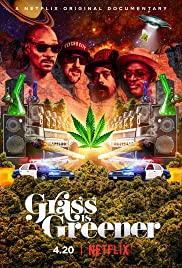
Weed. Marijuana. Grass. Pot. Whatever you prefer to call it, America’s relationship with cannabis is a complicated one. In his directorial debut, hip hop pioneer Fab 5 Freddy presents an unparalleled look at the racially biased history of the war on marijuana. A range of celebrities and experts discuss the plant’s influence on music and popular culture, and the devastating impact its criminalization has had on Black and Latino communities. As more and more states join the push to legalize marijuana, this documentary dives deep into the glaring racial disparities in the growing cannabis market.
You May Also Like
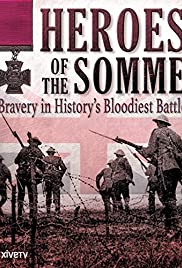
The Heroes of the Somme uses original archive from the Western Front to uncover the stories of seven of the men whose remarkable bravery won them the Victoria Cross, Britain’s most prized military medal.
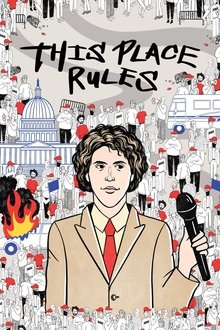
Acclaimed for his unfiltered reporting and deadpan humor, Andrew Callaghan brings his gonzo style reporting to the undercurrents that led to the January 6 Capitol Riot. As one of the best-known and hardest working journalists of his generation, the 25-year-old ventures on a wild RV journey through America to take the pulse of a divided nation.

Filmed over the course of three October 2024 nights in Atlanta, experience Jamie Foxx like never before in this intimate and engaging performance, as he opens up about his struggles, triumphs, and everything in between. Get ready for a night of laughter, reflection, and genuine connection.
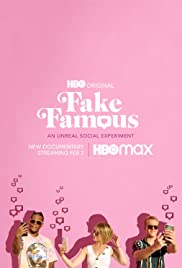
Explores the meaning of fame and influence in the digital age through an innovative social experiment. Following three Los Angeles-based people with relatively small followings, the film explores the attempts made to turn them into famous influencers by purchasing fake followers and bots to “engage” with their social media accounts.

portrays the Bruder working class family, whom she met during her time as a social worker in the Märkisches Viertel. Equipped with a Super-8 camera by Helga Reidemeister, the family had already begun filming their everyday life independently in the fall of 1969. However, when, together with Reidemeister, they looked through the four-hour material at the editing table in the summer of 1974, they realized that it depicted the family’s problems only superficially and left the social context out of the picture. Reidemeister, who had not yet intervened in the film shooting, then spent a lot of time with the family and documented everyday life together with them. The result was a multi-layered mixture of family self-testimony and reflection on social relationships.
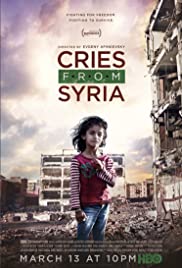
An attempt to re-contextualize the European migrant crisis and ongoing hostilities in Syria, through eyewitness and participant testimony. Children and parents recount the revolution, civil war, air strikes, atrocities and ongoing humanitarian aid crises, in a portrait of recent history and the consequences of violence.
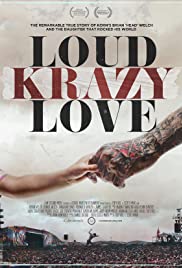
At the downbeat of the new millennium there was no bigger, darker, or more deeply influential hard rock band in the world than KoRn. But for lead guitarist Brian Head Welch, a dream come true was giving way to a raging nightmare of self-loathing and addiction. At the end of himself, he made an even harder decision than leaving KoRn. Told with intimate access to the family and band, this genre-bending documentary delivers unprecedented access to one of rock’s most unbelievable stories of restoration.
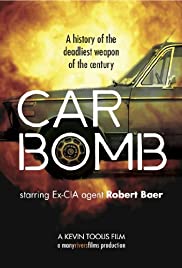
Forget about nuclear missiles, the decisive weapon of the twentieth century is the car bomb. After Iraq we now know you can defeat a Superpower, start a civil war or just blow up your own Government with a trunk load of home-made explosives and a battered old car. From the Middle East, Oklahoma, Ireland and the streets of the City of London the car bomb has shaped human conflict. Even today the car bomb remains the number one terrorist threat across the world. In this film, ex-CIA agent Robert Baer uncovers the history of this extraordinary weapon. With footage of car bomb attacks and interviews with car bombers, Baer reveals how the century of the car turned into the century of the car bomb. And how a dream of freedom turned nightmare.

Starting in 1988, a fierce battle raged between the two neighbouring states of Armenia and Azerbaijan (until 1991 part of the Soviet Union) over Nagorno-Karabakh. In 1994, an armistice gave control of Karabakh and the Azeri territory in-between to Armenia. Director Vadan Hovhannisyan shows the footage he shot as an independent war reporter on the front 12 years ago. He runs across the battlefield with a shaky camera, under a fierce shower of bullets. Scrawny soldiers with sunken eyes spend their days smoking, waiting and taking cover in trenches. Fallen comrades are carried down forest paths. Then, Hovhannisyan revisits the soldiers now, bringing prints of stills and frontline footage on his laptop. Although they have put on some weight, many of them are “victims of the peace,” as Hovhannisyan calls it in his voice-over.
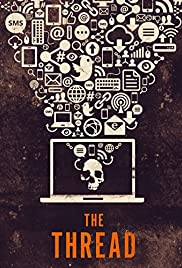
The Thread is a groundbreaking documentary that exposes the undeniable impact amateur internet writers are having on journalism today. Following the 2013 Boston Marathon bombing, amateur internet sleuths took to Twitter and Reddit, intent on identifying the individuals responsible. The ensuing investigation led to an innocent young man being charged with the crime, thus changing the face of journalism forever. Directed by Greg Barker (Manhunt) and executive produced by Emmy Award-winning producer Jonathan Chinn (American High) and Academy Award-winning producer Simon Chinn (Man on Wire).

A documentary-essay which shows Costică Axinte’s stunning collection of pictures depicting a Romanian small town in the thirties and forties. The narration, composed mostly from excerpts taken from the diary of a Jewish doctor from the same era, tells the rising of the antisemitism and eventually a harrowing depiction of the Romanian Holocaust.

The story of some of the people on the Polcevera Bridge on the day of its collapse, investigating what caused the bridge to fail so catastrophically.